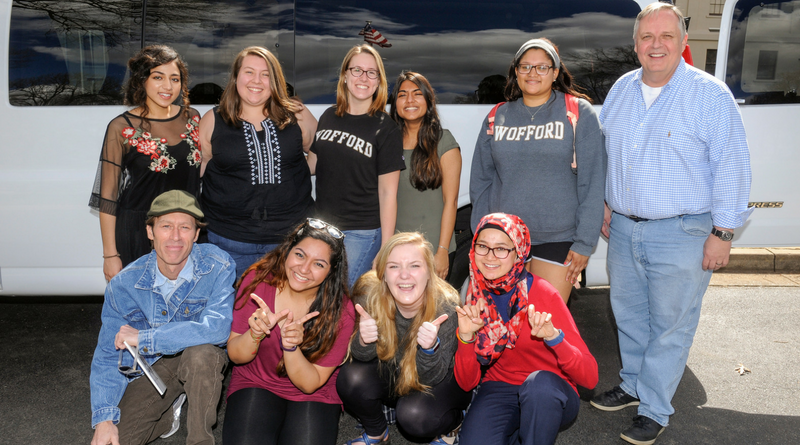By: Omar K. Elmore, Staff Writer
In February, Wofford’s Interfaith Youth Core (IFYC) visited Elon University to attend Ripple, a regional conference for college students, faculty and staff. There, attendees explored the idea of pluralism and how it could be used as a tool to bring people of all faiths together.
On the national Interfaith Youth Core’s website, pluralism is described as the combination of three ideas: “respect for people’s diverse religious or non-religious identities, mutually inspiring relationships between people of different backgrounds and common action for the common good.” The idea is that these ideas spread beyond faith and into people’s day-to-day lives.
“Pluralism is important because it highlights the real world which is diverse and challenging,” says Mahnoor Haq ’19, who has been involved with IFYC for two years. “Managing the differences that you see in different people is something everyone needs to learn to be able to thrive in the world.”
Haq, who practices Islam, was astounded by the various perspectives present at the conference, both religious and nonreligious. “Ripple is a great example of what the Interfaith Youth Core aims to accomplish,” she says. “We had a huge group of people from different backgrounds listening to different priests, rabbis, imams and atheists and really talking to each other without using religion and faith as a point of tension.”
One of Haq’s favorite moments from Ripple involved Sufi music and poetry which showed her the heart of Islam which, according to her, doesn’t get enough exposure. “It was cool to experience something from my own faith that confronts me with my own notions of what I believe,” she says.
IFYC provides campuses with different resources to engage students in a number of events and conversations, challenging them to look past their differences for the greater good. Service is how the campus groups usually get students together. According to its mission statement, IFYC’s goal is to create an open forum for discussion along with community work amongst different religious and faith traditions.
“Service is a good way to give [students] a common goal,” says Haq. “We are not, as a group, just taking this information and taking these experiences for granted. We also are using it to come together to give back to our community.”
At Wofford, the group hosts guest lectures and panels exploring the many ways faith and religion, or lack thereof, can be used as a topic of civil conversation instead of a breaking point. Haq notes that this kind of discourse is indicative of the kind of society America should aim for.
“Coming to understand a culture that may at first seem backwards to you is a great and necessary challenge,” says Haq. “Different people coming together in harmony—that is what America is all about. We can be different and equal at the same time. Accepting those differences without treating them as signs of inferiority is what IFYC wants to bring to campus.”






























